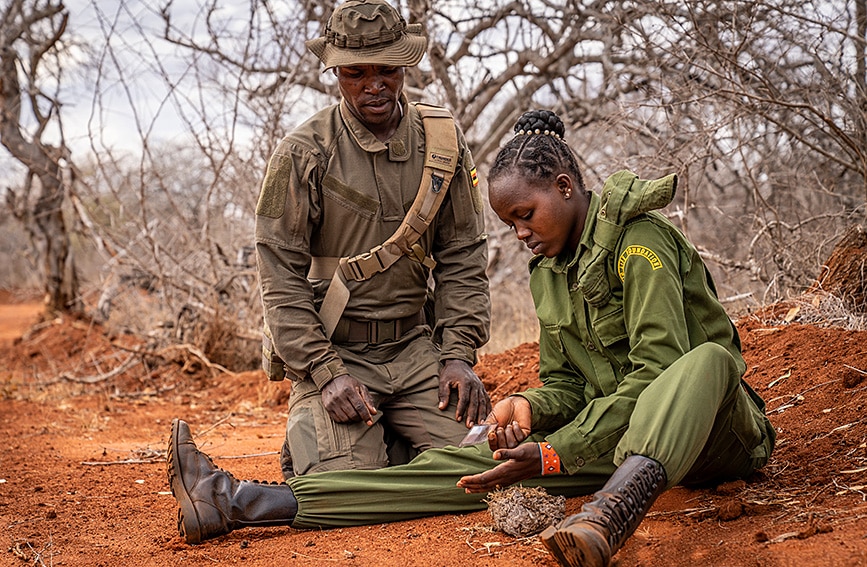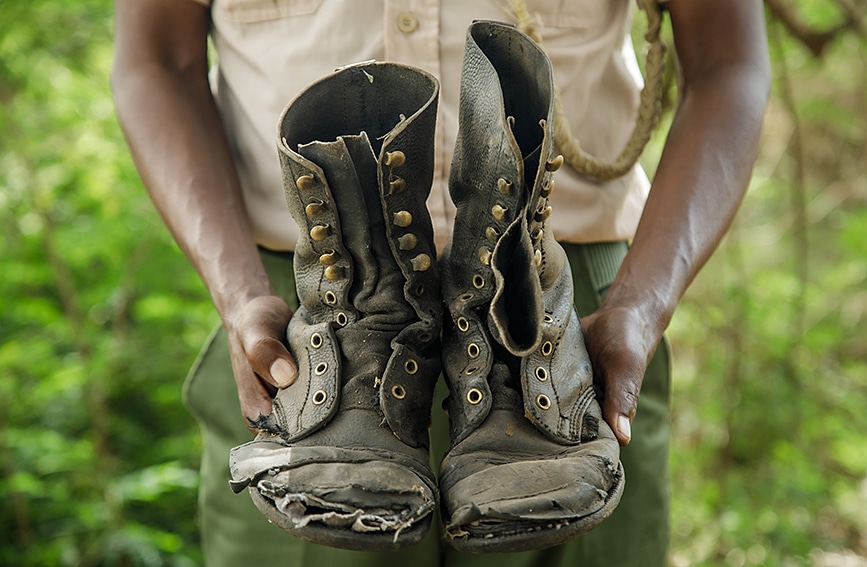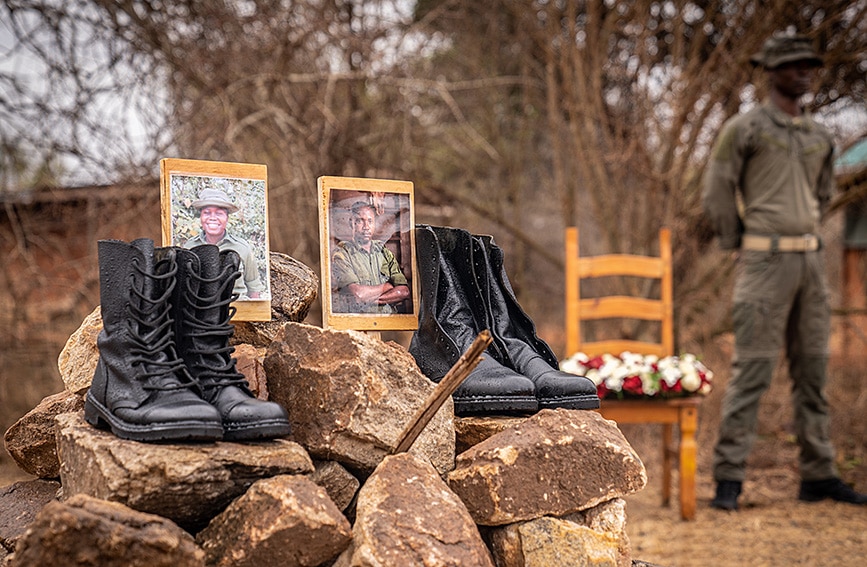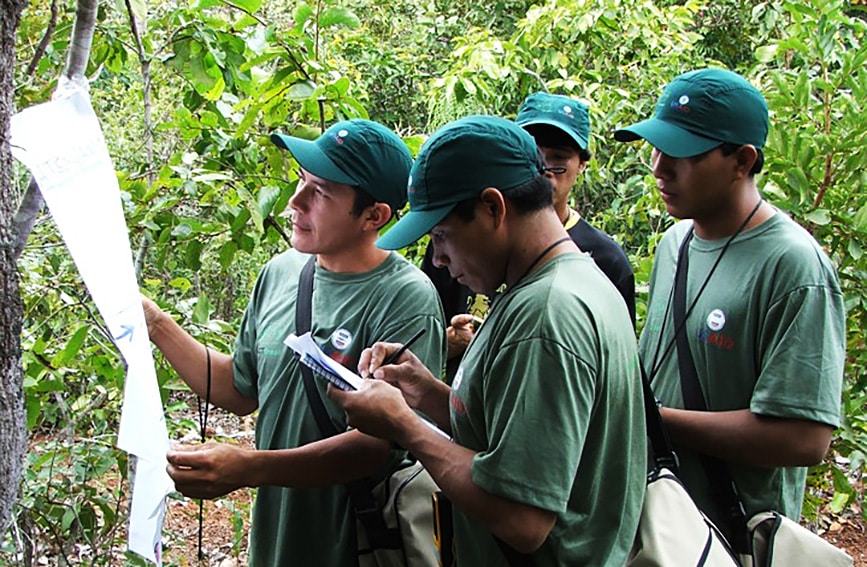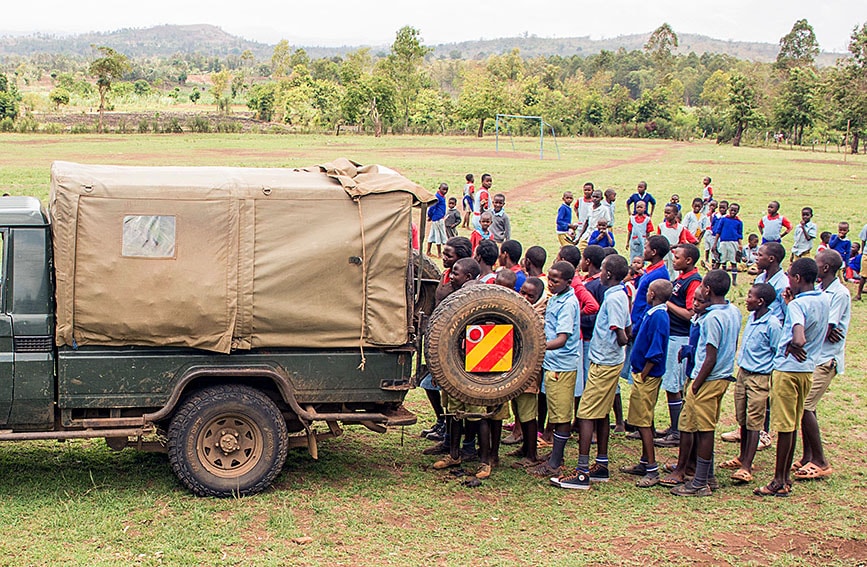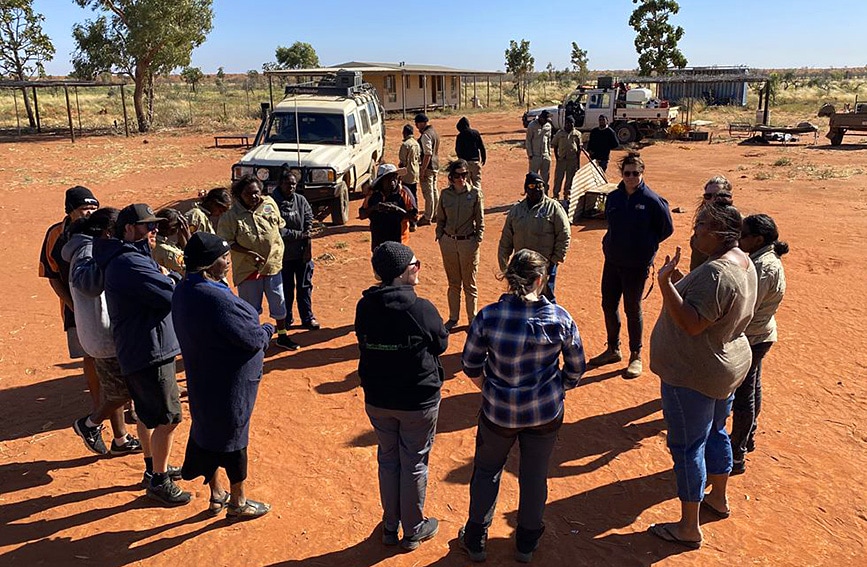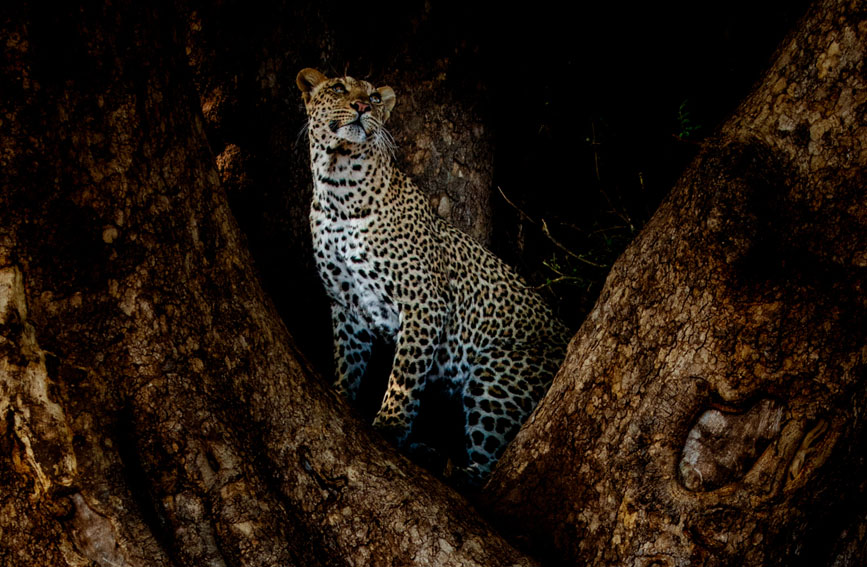We provide tailored and direct support that improves the lives and working conditions of rangers. We also initiate and invest in game-changing programs that achieve wide-reaching impact for ranger operations and community conservation.
Through this work we increase community engagement in conservation, promote Indigenous and local knowledge within land management, improve the rights and recognition of rangers, and support conservation programs worldwide.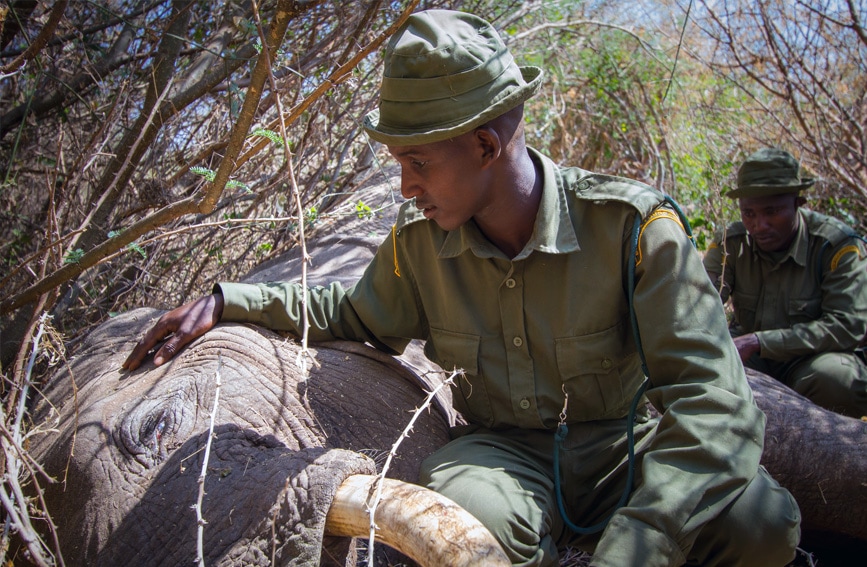
LEAD Ranger
LEAD Ranger is an innovative ‘train-the-trainer’ program that supports skills development and knowledge exchange, nurtures leadership, and embeds teaching capability within conservation organisations across Africa. Delivered in local language by a team of predominantly African trainers, LEAD provides adaptable learning resources and leadership training that enables rangers to share specialist knowledge and experience among their teams.
LEAD’s Coach Ranger Life Savers (CRLS) course is a four-week entry-level course that provides rangers with essential remote first-aid skills and prepares them for emergency situations in the field. Skills gained through CRLS have prepared rangers to respond to medical emergencies and have resulted in the lives of multiple rangers and community members being saved.
LEAD also runs a Field Ranger Instructor course, an intensive four-month program that develops rangers’ understanding of their roles and builds confidence to perform advanced tasks including patrol planning, wildlife crime investigation, and managing people in protected areas.
After completing LEAD training, rangers return to their respective organisations with improved capabilities and a newfound capacity to lead their peers in operational and training activities. By January 2023, we had certified 177 individuals through LEAD Ranger training. These rangers gained the capacity to train their colleagues, amounting to around 5,200 rangers across Kenya, Tanzania, Uganda, Malawi, Mozambique, Ghana, and Zimbabwe. That number grows exponentially as more organisations commence training.
LEAD Ranger was developed in collaboration with our partners Ranger Campus and the International Anti-Poaching Foundation (IAPF).
We’re planning to expand LEAD Ranger into 11 African countries, plus Latin America and Asia. By 2025, we want to give 12,000 rangers access to LEAD Ranger training.
Critical equipment
When rangers tell us what they need, we listen. Thin Green Line’s Equipment Fund provides rangers with the opportunity to request equipment and resources they need to carry out their essential work safely and effectively.
This can include:
- Uniforms and boots
- Tools
- Fire protection gear
- Water filtration
- First-aid and personal protective supplies
- Camping equipment or permanent field shelters
- GPS and field camera equipment
- Rations and salary supplements
- Morale-boosting items such as musical instruments or sporting equipment
The Fallen Ranger Fund
A ranger’s job is one of the most dangerous in the world. On average, a ranger loses their life on the frontlines of conservation every three days. Accidents, disease, human-wildlife conflict, and homicides by rebel militia and poachers are the leading causes of ranger deaths. Since its inception, Thin Green Line has supported the families of these rangers, providing a financial lifeline during the darkest time of their lives. Most rangers who die leave behind young families with school-age children.
With no other form of income, their widows are often left to make an impossible choice – keep their children in school or send them out to work to ensure the family’s survival. The Fallen Ranger Fund allows children to remain in school. It provides widows with the opportunity to start a small business for their family’s long-term financial stability. It secures housing and assists with funeral costs. It provides hope and the promise of a brighter future.
The Amazon’s Indigenous Protectors program
Thousands of Indigenous peoples still live traditional lifestyles in the Amazon rainforest – the most biodiverse region on Earth. Indigenous communities are struggling every day to maintain access to their lands, and to protect the forest from exploitation, with the COVID-19 pandemic having exacerbated these challenges. Many communities closed all contact with the outside world to keep their people safe however, in doing so, they were unable to protect the forest from poachers and loggers.
In hearing of their struggle, Thin Green Line reached out to our own community for support. Thanks to the generosity of our donors, we were able to provide support for Indigenous forest protectors among the Ikpeng and Tumucumaque people of Brazil. The aim of this program is to equip and train Indigenous rangers, enabling them to participate in the protection of their traditional lands and confront the growing threats to their livelihoods. We provided uniforms and basic patrol equipment including boots, flashlights, machetes, and personal protective equipment and will continue to do so as needed. We also funded a new patrol boat for rangers in the Ecuadorian Amazon, replacing a boat that was destroyed in a storm.
In parallel with these activities, we are in regular consultation with our on-ground partners to develop opportunities for Indigenous people to network with other rangers within their region and internationally.
Junior Ranger program
Junior Ranger is a program that aims to connect people with nature by fostering respect and care for the natural world in children and linking them with the rangers who work in their local protected areas. As with all Thin Green Line programs, Junior Ranger is a culturally appropriate and flexible framework that can be tailor-made to each community’s requirements.
In Africa, three partner organisations were selected to pilot the program in their local communities in Kenya and Zambia. While each program is unique to its location, the common theme is that of environmental education and connecting children with their natural surroundings. Activities have included field excursions, wildlife spotting and tracking, tree planting, waste management, learning ranger skills, and classroom-based education.
In Australia, the Junior Ranger Program has been used by female Indigenous rangers in two-way learning initiatives, whereby children learn about their country using cross-cultural methods such as camera traps, tracking, and mapping. Ranger groups and community schools work together to foster knowledge and cultural pride among children.
Ranger Exchange program
Our Ranger Exchange program is about bringing rangers together to share their knowledge, skills, and experiences. We believe this work is critical for developing solutions to the social, economic, and environmental issues that affect rangers globally, while also strengthening the ranger profession and boosting their visibility within the wider conservation community.
Thin Green Line supports any opportunity where rangers can connect. Whether this be at a large international forum – such as the World Ranger Congress – a regional conference, or a local gathering, we see the transformation that can happen when rangers get together. Recently, we have supported the attendance of rangers at regional events in Africa, Europe, and New Zealand. We also work closely with Australian NGOs to support Indigenous ranger exchange programs to connect rangers operating in remote desert regions.
